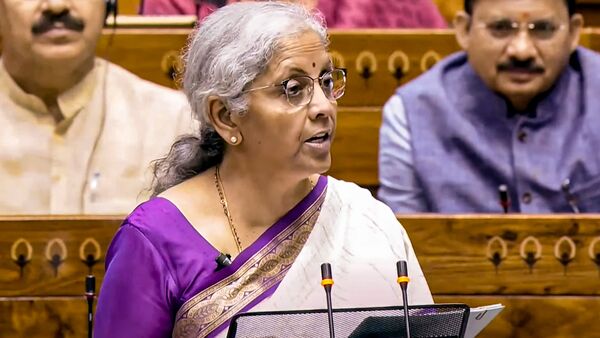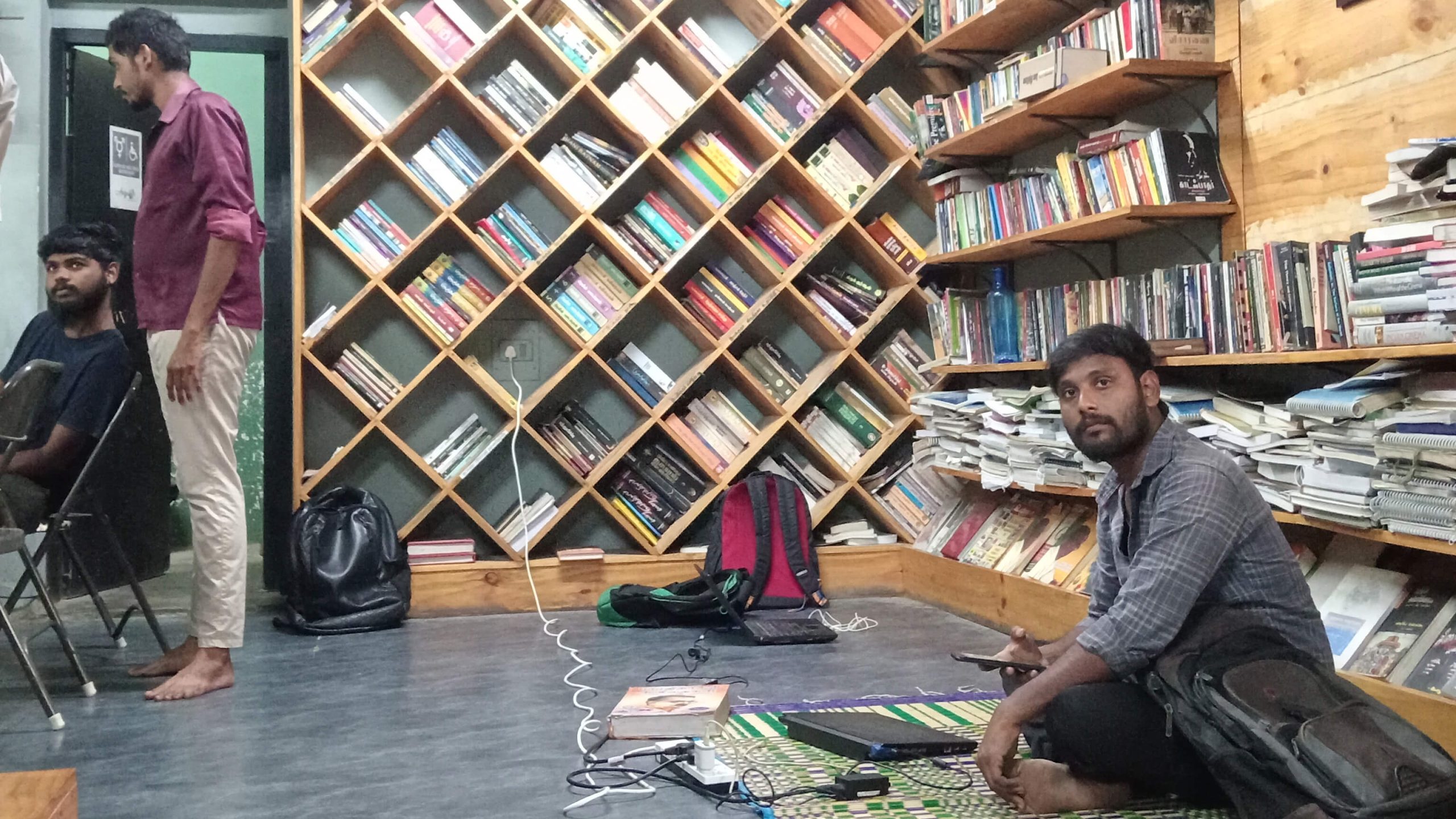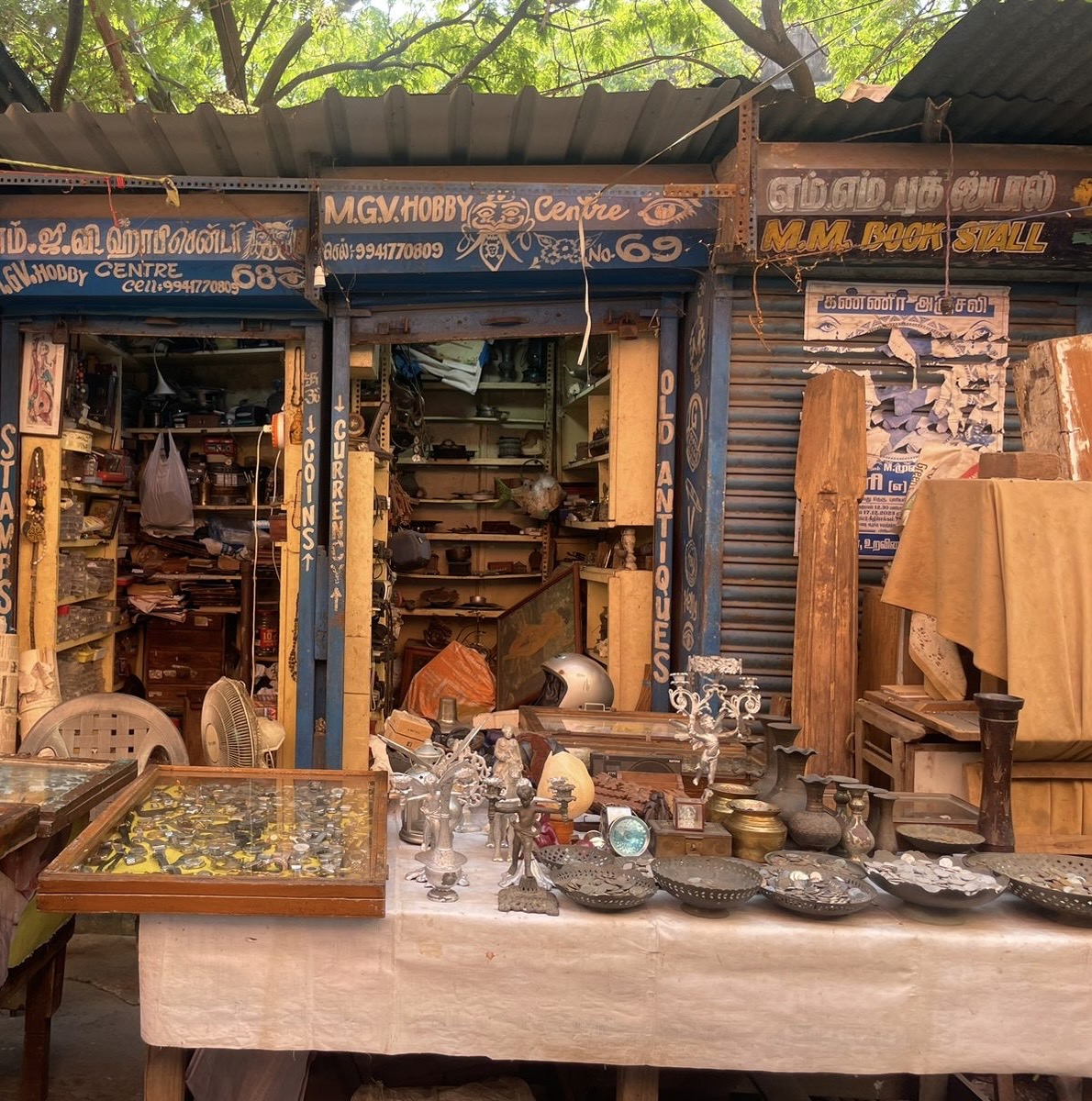Mobile phones, gold and silver to get cheaper, angel tax abolished, special packages for AP and Bihar are some of the highlights of the Budget.
NIVEDITA S & AADITYA KHATWANI
NEW DELHI: Finance Minister Nirmala Sitharaman presented the Union Budget for the financial year (FY) 2024-2025 on Tuesday, July 23. It will be a roadmap for the “pursuit of Viksit Bharat.”
The Budget highlighted nine key ‘priorities’, including productivity and resilience in agriculture, employment and skilling, human resource development and social justice, manufacturing, urban development, energy security, infrastructure, research and development as well as next generation reforms.
Changes in Direct and Indirect Taxes
Significant changes in the personal income tax regime were announced for the current fiscal year. The standard deduction for salaried employees is to be increased from Rs. 50,000 to
Rs. 75,000. Standard deduction on family pension for pensioners is to be increased from Rs. 15,000 to Rs. 25,000. This is expected to benefit 4 cr. individuals and pensioners.
Moreover, tax slab limits have been changed and an average salaried person in the new regime can save up to Rs. 17,500 in income tax according to the FM.
Ms. Sitharaman said in a press conference that she cannot take a call on whether the old tax regime will be rolled back.

Several steps have been taken to promote investment. Angel tax has been abolished to enhance the start-up ecosystem. The rules and regulations for Foreign Direct Investment and Overseas Investments have been simplified along with promoting the use of INR as currency for overseas investments. Corporate taxes on foreign companies have been reduced from 40% to 35%.
However, long term capital gains taxes on all financial and non-financial assets have been increased from 10% to 12.5%. Taxes on short-term capital gains on certain financial assets have been increased to 20%.
The Budget intends to expand Goods and Services Tax (GST) to other sectors. Mobile phones, chargers, some critical minerals, fish, X- ray equipment will now be cheaper due to reduction of Basic Customs Duties (BCD).
BCD on gold, silver and platinum has also been reduced along with other metals like ferro nickel and blister copper. Three cancer medicines and 25 critical minerals have been exempted from custom duties. BCD on plastics, telecom equipment has been increased.
Employment and skilling initiatives
Ms. Sitharaman announced the PM’s package of employment and skilling schemes worth Rs.1.48 lakh cr. Three schemes are under “Employment Linked Incentives” and the other two focus on skilling initiatives.
The first scheme aims to provide one-month wages to all first-time workers through direct benefit transfers up to Rs. 15000 in every formal sector. The second aims to generate employment in the manufacturing sector by providing incentives to employees and employers, based on their Employees’ Provident Fund Organisation (EPFO) contribution. These schemes are expected to benefit 240 lakh youth.
The third applies to all sectors, and focuses on employer support. Under it, employers will be incentivized, through a reimbursement of Rs. 3,000 for each additional employee, for the next two years. It is expected to generate additional employment of 50 lakh people.
A five-year skilling initiative will be implemented through the fourth scheme, aiming to skill 20 lakh youth and upgrade 1,000 industrial training institutes. Under the fifth scheme, 1 crore youth will be provided with year-long internship opportunities with 500 top companies, across professions.
Boosting MSMEs
The Budget has given a special focus on boosting the growth of Micro Small and Medium Enterprises (MSMEs) and labour-intensive manufacturing industries.
A credit guarantee scheme for machinery without requiring collateral or third-party guarantee was introduced. The limit for Mudra loans has been increased to Rs. 20 lakh from Rs. 10 lakhs under the TARUN category.

A government promoted fund will provide credit support for MSMEs during “Stress Periods”. E- commerce export hubs will be built for MSMEs and artisans to sell their products internationally.
State specific allocations
The FM announced the Purvodaya plan for the development of the country’s Eastern region which includes Bihar, Jharkhand, West Bengal, Odisha, and Andhra Pradesh.
Under this, Rs. 26,000 crores have been allocated for road connectivity projects and Rs. 21,400 crores for the establishment of a power plant in Bihar. Along with this additional allocations for the construction of new airports, medical colleges, and sports infrastructure in the state was also announced.
15,000 crores have been allocated to Andhra Pradesh for the development of Amaravati. Funds will also be provided for development of essential infrastructure in the state.
Infrastructure
Ms. Sitharaman stated that private sector investment in infrastructure will be encouraged. “A provision of Rs. 1.5 lakh crore for long-term interest free loans has been made this year to support the states in their resource allocation” she stated.
The fourth phase of PM Gram Sadak Yojana will be launched to provide all-weather connectivity to 25,000 rural habitations.
Financial assistance will be given to Bihar, Assam, Himachal Pradesh, Uttarakhand, and Sikkim, for flood mitigation projects.
The Budget also emphasizes the tourism industry, which will “stimulate all sectors of the economy.” Special focus was given on the development of the Vishnupad Temple Corridor and the Mahabodi Temple Corridor.
Agriculture and farmer focused initiatives
Agriculture and allied sectors have been allocated Rs. 1.52 lakh crore. The government will release 109 high-yielding and climate resilient varieties of 32 crops for cultivation, said Ms. Sitharaman. Additionally, six crore farmers and their lands will be registered with the government, and Jan Samarth based Kisan Credit Cards will be issued in five states.
Budget Estimates
Capital expenditure has been retained at Rs. 11.11 lakh crore for this fiscal year, which is 3.4% of the GDP. Fiscal deficit target has been reduced to 4.9% of GDP from the 5.1% target given in the interim Budget. The government estimates to spend Rs. 48.21 lakh crore for the year 2024-25. Its total receipts excluding borrowing are estimated to be at Rs. 32.07 lakh crore.
In continuation with the theme of the interim budget, the FM stressed on focusing upon the four major ‘castes’: poor, women, youth, and farmers in policies and schemes. Welfare schemes for SCs, STs, farmers, women, informal sector workers and artisans will be “stepped up” for inclusive development.




